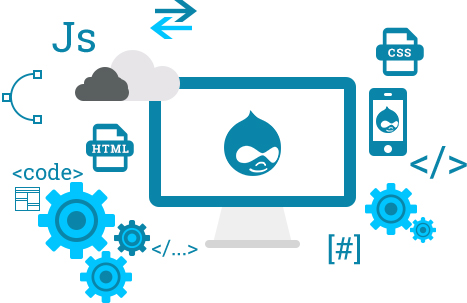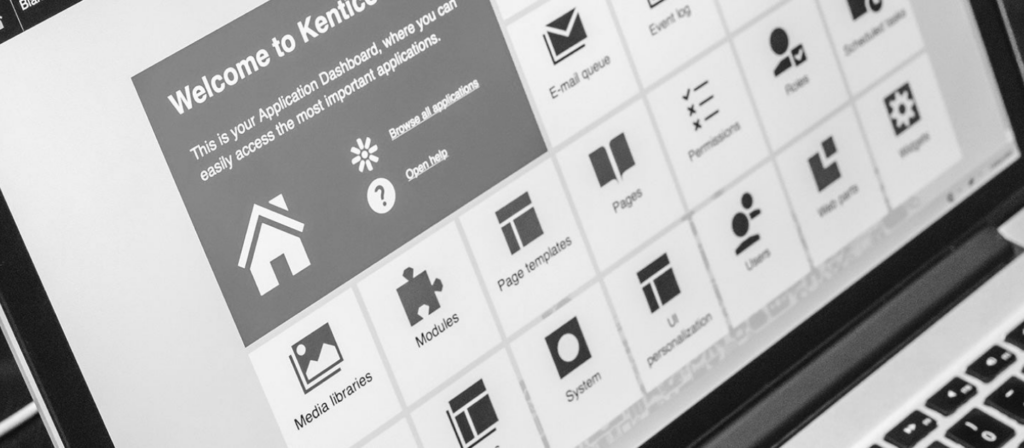
Happy birthday Drupal! In 2021 the popular CMS platform turns 20, and what a two decades it has been. Join us as we take a look back at the origins of Drupal, what it has offered to the world of web development and where we can expect it to take us in the future.
But first: before we can fully understand the contributions Drupal has made to the world of CMS, we should perhaps go over a few basics.
CMS explained
A content management system — or CMS — is a type of software that enables users to create, upload, edit, and manage content with ease. Using a CMS does not demand in-depth coding skills or tech knowledge, although both of these can certainly help if you are looking to create a complex, branded website. By some estimates, over 63 million websites currently live on the internet were built using some form of a CMS platform. The most popular of these platforms include WordPress, Kentico, and Drupal.
There are many benefits to using a CMS platform to run your website. Many people not familiar with the capabilities of a CMS incorrectly assume that using the software limits what features you can add and the degree to which you can personalise your site. In reality, web developers love using CMS platforms due to their ease of maintenance, cost-efficiency, and extendable functionality.
Further benefits of using a CMS include:
- They allow for easy collaboration between users. Multiple (authorised) users can be working on your CMS at the same time, enabling increased productivity and improving the workflow process.
- They are built with SEO in mind. CMS developers understand the necessity of being able to optimise your site for SEO purposes. Many platforms offer the ability to customise your page titles and meta descriptions, choose SEO-friendly URL structures, including alt-text, and more, so that your site has the best chance possible of ranking high on search engine result pages.
- They are easy to update. This is particularly important. Rarely do you build a website without the intention of updating the content, features, or most importantly, security settings. A good CMS platform should be easy to update, keeping your site relevant for years to come.
Some CMS platforms are built with specific users in mind. Kentico, for example, has features that are important to those working in the eCommerce and digital marketing sectors. Others, including WordPress and Drupal, are adaptable and can be used for a wide variety of purposes. Whether you are looking to build an online blog, social network, forum, or portfolio, there is a CMS to suit you. Which leads us to our next point — why go with Drupal?
Why go with Drupal?
In 2021, Drupal is celebrating its 20th birthday, making it one of the oldest CMS platforms on the market today. This longevity points to several things, not least of all an ability to adapt and keep up with the changing needs of developers and web users.
Like many famous tech platforms, Drupal was born in a university dorm. Two students at the University of University of Antwerp first developed Drupal as a means of keeping up with their friends — an early form of social networking. After opening the content system up to the wider community, Dries Buytaert and Hans Snijder named their site ‘Drupal’ after the Dutch word ‘druppel’ which means ‘drop’. Buytaert and Snijder hoped that Drupal would inspire a flow of ideas between users — which has certainly been the case over the past 20 years.
From humble beginnings, Drupal has now grown into a platform with millions of users. Drupal is known as an ‘open source platform’. That means its source code is available to all users, giving them the opportunity to view, copy, edit, and share that code. For many developers, the ability to actively contribute to the platform is one of the main benefits of using Drupal.
From a website owner’s perspective, the benefits are far more practical. Drupal places a large emphasis on creating unique, engaging user experiences, and as such, offers many interface options. The platform is scalable, meaning your website can grow as your business does. Security is also a top concern of Drupal developers, and the platform offers many features to enhance user safety and privacy.
Finally, Drupal understands the importance of providing an accessible web experience. The platform ensures that its features conform to accessibility standards, meaning that all customers have equal access to digital services.
Newpath Web — Australia’s #1 Drupal experts
Why do we know so much about Drupal? Well, it’s just part and parcel of being an Australian leader in Drupal development.
Newpath Web has been there since (almost) the beginning, providing our valued customers with Drupal development services since 2008. We not only understand the power of the platform, but have a unique ability to translate the needs of our clients into impressive, engaging websites.
We have experience developing Drupal sites for organisations of all shapes and sizes (including government bodies) and our team of dedicated Drupal developers are yet to meet a project they couldn’t handle.
If you’re looking for industry leading Drupal developers in Melbourne, contact Newpath Web today.
Oh, and happy birthday Drupal!





